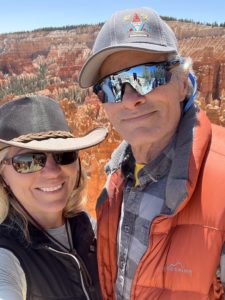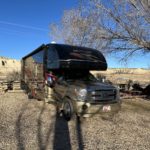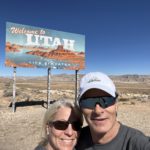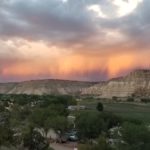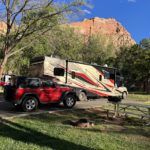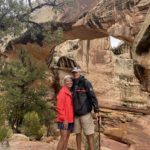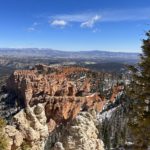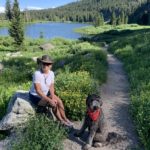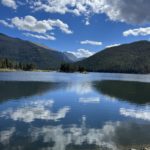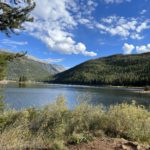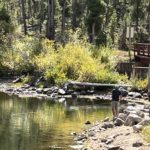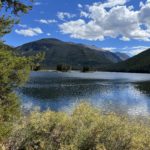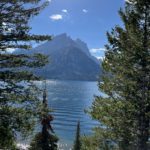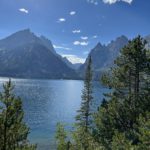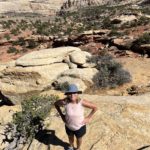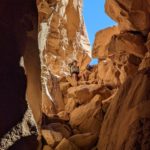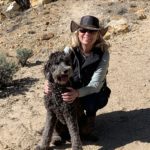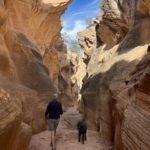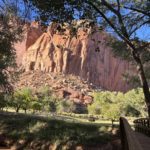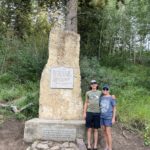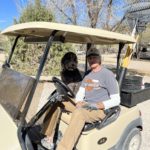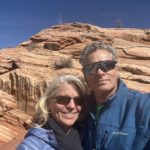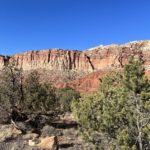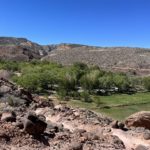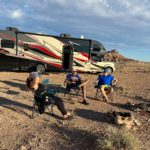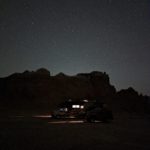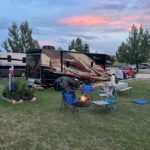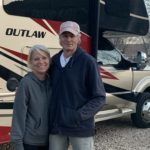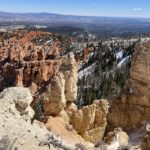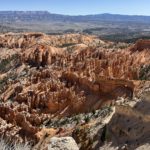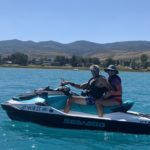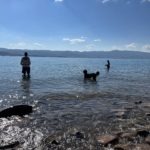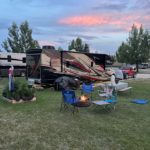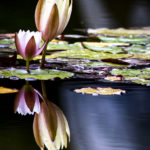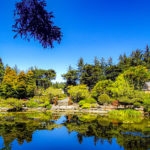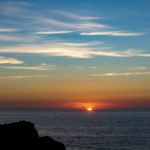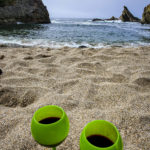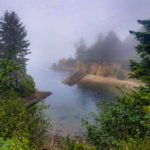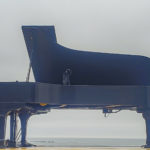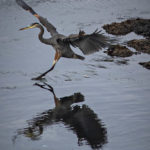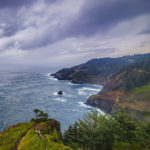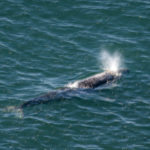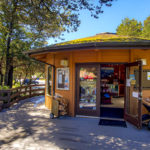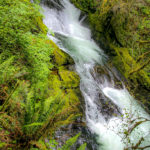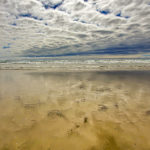A lot of people’s retirement plans include outdoor activities such as camping, hiking, whale watching and learning more about nature, but some people have found a way to do it for free or, in some cases, even get paid a little for it.
They are camp hosts. These campground workers are volunteers or people easing into retirement by still getting paid a small amount to do jobs such as greeting other campers, handling reservations and keeping campgrounds clean and safe.
“What’s the downside?” said Denice Bradbury, who was in communications and public affairs when she lived in Wichita. “You get to stay in a park free for a month.”
She and her husband, Randy, a writer, along with their two cats and dog, now spend four months of the year volunteer hosting at various state parks not far from their home in Portland, Ore.
Wichitans Susan and David Cohrs are paid camp hosts.
“It’s more like minimum wage,” said Susan, who used to work for Visit Wichita. “We kind of call it semi-retirement.”
Cohrs Photo Gallery
Bradbury Photo Gallery
She and David, a retired police officer and former trucker, used to camp a lot with their kids.
Seven years ago during a motorcycle trip the two took, they visited with camp hosts around a campfire in Santa Fe and talked to people in a KOA office and decided that lifestyle might be for them.
“We just kind of took baby steps,” Susan said.
Part of the appeal is that three of their four children live outside of Wichita, and camp hosting near the cities where they live allows Susan and David to be in their lives more than what a vacation could offer.
For instance, next winter they plan to be in Joshua Tree outside of Los Angeles where they have a daughter and three grandchildren.
Their son in Houston has asked them to time their hosting near there for when he and his wife have a baby.
Being in one place for an extended period also allows them to learn more about an area.
“You’re a local for that amount of time,” Susan said.
She and David started last year in Bryce Canyon, Utah, but when that campground was sold three weeks later, they moved six hours north to Bear Lake near Garden City, Utah.
Though their divided time was unplanned, David said, “You can do a short stint here and a longer one somewhere else. You’re not just a visitor because you’re there longer.”
Though hosts generally have to work weekends and holidays, Susan said schedules are flexible, which is important because she and David want to make sure they have the same schedules as each other.
“It’s pretty lenient with the time off.”
Planting a seed
During the pandemic, one thing the Bradburys could do regularly is camp in state parks. They met park hosts and started talking to them about what they do.
“That kind of planted the seed,” Denice said.
In Oregon, she said “it’s so competitive just to get into the parks.”
For the last three years, the Bradburys would have to get on the park system’s website a minute after midnight if they wanted to book a weekend at a campsite.
Also, Randy said there’s a 14-day limit per campground stay within a 30-day period, and it’s difficult to find those days together.
So hosting “was kind of a no-brainer,” Denice said.
Randy said the experience is what they thought it would be — and more.
“The rangers are just absolutely amazing,” Denice said of the full-time staff members.
She said she and Randy have learned much from them.
“It’s kind of mind blowing.”
She said they did have concerns about how they might handle differences with other people, but she said hosting proved to be a good exercise in finding common ground.
“People seem to pretty much try to get along, and we do, too,” Denice said.
“It helps you — at least in my case — it helps me kind of put aside some superficial assessments that you may make about people and just be open to learning from them. It’s always a surprise, and it’s usually always remarkably positive and inspiring.”
She called them “little gems of human interaction and meeting interesting people.”
That includes a Medieval Italian poetry-loving ranger at South Beach State Park.
“He’s carrying on this highly informed, erudite conversation about ‘Dante’s Inferno,’ ” Randy said.
Meeting someone like that, Denice said, “It’s just really a gift.”
At Shore Acres State Park, Randy said a pianist played classical music on a grand piano outside for three days of shows called In A Landscape, which was next to breaking waves along a rocky shore.
“It was just like magic.”
And then there’s work
There are magical moments, and then there’s work — much of which isn’t all that bad either.
“Basically, it’s like working at a front desk of a hotel for me,” Susan said.
At Bear Lake, she managed a small retail store, advised campers on what to do in the area and checked them in and out of the campground.
“I really enjoyed it.”
David escorted guests to their campsites, showed them where the utilities were and brought them ice and wood. He also did maintenance, such as lawn mowing, weed eating and raking debris.
There was a bit of policing like in his old job as he made sure everyone behaved. If guests drove too fast, David would give gentle warnings.
“It’s pretty much what I thought,” David said of the work.
“I did get stuck cleaning once, and I won’t do it again,” Susan said of bathroom detail. She said in fairness, she did volunteer to help, but she said, “It was too hard.”
At some campgrounds outside of Oregon, Randy said bathroom clean-up duties are fairly common and hard to avoid.
“And we’re not going to do that,” Denice said. “I’ll do a lot of things . . . but I did not work hard and retire to go clean a public bathroom.”
They did clean yurts and campsites at South Beach.
“There we did a little bit of everything,” Randy said.
At Shore Acres, they ran the information and visitors center and met people from around the world.
“That was really amazing,” Randy said.
With visitors to the whale watching center at Depoe Bay, he said, “We taught them how to learn to see whales.”
At Cape Foulweather, they also helped visitors spot whales from a 500-foot cliff. He called the panorama of the Pacific Ocean, headlands, bluffs and whales stunning.
It’s “probably one of the most beautiful views you’re ever going to see in your life.”
Tips and tricks
Both hosting couples have advice for others who may be considering it.
“Yeah, buy a condo in an urban area,” Randy said.
“It’s easy for us because we walk out and let the door close,” Denice said. “It would be harder if you have a house.”
David and Susan have a condo, too.
Susan said a lot of hosts sold their homes, “And they went all in with their campers.”
Also, Randy said, “You pretty much have to have an RV.”
Some hosts use tents, but most have motor homes or trailers.
Susan advises taking the leap.
“It sounds scarier than it is,” she said.
There were 24 people working at Bear Lake, their second stop, most of whom were couples.
“We made some really great friends,” Susan said. “It was really a neat way to meet people.”
She and David intend to eventually be home only during November and December and host the rest of the time.
In five years, Susan said they may re-evaluate and decide to do it on a voluntary basis.
“I can see that down the line,” Susan said.
However, “Dave likes the work,” she said.
“It just gives you a little extra pocket change to play around,” he said.
Randy and Denice hosted four months of last year and plan the same this year. They love their lives in Portland, but now they love hosting, too.
As Randy put it, “I can’t imagine not doing it.”

